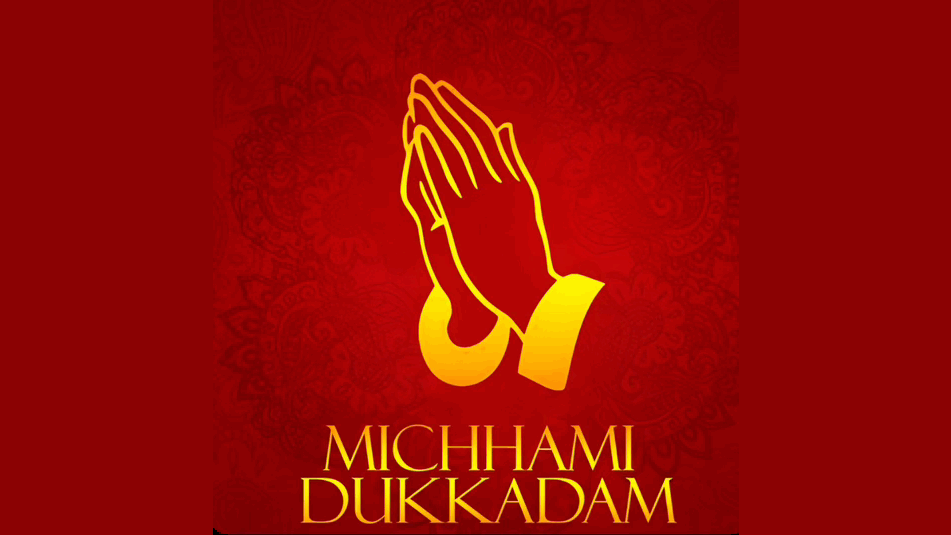Epistemological Means
We might consider that Jain Dharma may follow an evidentialist standard of knowledge, that is, where we can “proportion our belief to the evidence.” However, the data which might be considered as permissible for evidence may be different from Western theories of knowledge held by rationalists and empiricists since it allows for a variety, a spectrum, of epistemic means, that is, ways that human perception can provide information that can be a foundation for knowledge. These four types of epistemological means that are believed by Jains to provide validation verification for knowledge can include "(1) pratyakṣa (direct cognition), (2) anumāna (inference, or logic), (3) āgama (scripture-based testimony), and (4) upamāna(comparisons [or by analogy])” (An Introduction to Jain Philosophy, AIJP, by Parveen Jain, 2019, 80). But these can also operate on a scale of reliability.
Epistemological Gradation: Indirect (Parokṣa) to Direct (Pratyakṣa) Knowing
Empiricism in the Western context tends to elevate and refer to external senses (indriya), rather than the mind (manaska, or anindriya), above other means of acquiring knowledge and Western rationalism tends to elevate the knowledge understood by reasoning in the mind over that which is gained by the senses. Jain Dharma cannot be understood as a form of empiricism in that sense, but the tradition does allow for empirical knowledge (mati-jñāna)—consisting of the senses and the mental faculties that process them—as a form of admissible evidence, making it at least somewhat compatible with Western empiricism (AIJP 219, 69-72). But, for Jains, forms of empirical knowledge are discounted as “indirect” forms of knowledge, or parokṣa-jñāna, relative to the superior forms of “direct knowledge” or pratyakṣa-jñāna.
These epistemological means (above) also intersect with a schema of gradation of knowledge that move along the spectrum of “indirect” (parokṣa) to “direct” (pratyakṣa). Therefore, the experiential epistemological means is a little more complex in Jain Dharma than in Western empiricism because it proposes more of a gradation and includes other epistemological means as well. This epistemological gradation moves in degree from a point where our knowledge is merely mentally constructed and is therefore to some degree an “unreal” mental representation, along the spectrum to the degree to which that which we know is not a mere mental construction. The degree to which our knowledge is mentally constructed is the degree to which the objects of our knowledge are “unreal,” and therefore, lack full veracity.
The first two levels of “indirect knowledge” (parokṣa) include: (1) mati-jñāna, “empirical knowledge” that deal not only with the external sense perceptions, but also with our mental faculties that process those perceptions (mati), and (2) śruta-jñāna, “scriptural knowledge,” which is indirect because it conveys indirectly what sages have themselves experienced directly and also because it is subjected to our own interpretation which will only be accurate to the degree that we have achieved some amount of wisdom.
Conversely, this epistemological gradation moves in degree from parokṣa-jñāna, where our objects of knowledge are to some degree unreal, towards increasingly veracious knowledge where the objects of knowledge are not mere mental constructions, but are increasingly “real” as “direct” (pratyakṣa) perceptions.
After parokṣa-jñāna, the next three levels of gradation of knowledge include: (3) avadhi-jñāna, which is something like “clairvoyance,” (4) manaḥ-paryāya-jñāna, which involves knowing the mind of others, and (5) kevala-jñāna which is perfect knowledge unobstructed by ignorance caused by karma.
Representational Vs. Direct Theories of Knowledge
Western philosophy, particularly in modern times, has strongly debated whether knowledge can be directly obtained or if it can only ever be indirect, mere representation of reality. On the one hand, those who argue for a representational theory of knowledge hold that we can only ever know our mentally constructed models of reality. They believe that we cannot know what reality in-itself is, or that we can ever know reality directly. They argue for an “anti-realist” position, that we only ever have direct knowledge of our own thoughts and mental images of reality. These images are constructed and are therefore such knowledge is “unreal.” A great number of very influential Western philosophers assert a representational theory of knowledge, that is, they believe that knowledge can only ever be indirect (Locke, Hume, Kant etc.). They hold that we can never be certain about that which is external to our own mind, and we may not even know our own mind directly according to some.
However, there are a few Western philosophers who posit a “direct theory of knowledge,” namely, that reality can be known directly. They argue that since reality is the cause of our perceptions, our perceptive capacities are interacting in a unified field with the objects of knowledge (e.g. Hegel, Whitehead, etc.) rather than a strict disjunctive binary of “perceiver/perceived,” “subject/object” etc. They believe that reality is directly known beyond merely “unreal” mental constructions, and therefore our appropriate perceptions and thoughts can be taken as real aspects of reality. This is a “realist” position, namely, that they are “realist about” the knowability of objective reality directly.
This “directly theory of knowledge” is more similar to dharma traditions (Jainism, Buddhism, and Hinduism) since nearly all of them believe that ultimate reality (however it is so understood by each tradition) is directly knowable apart from the illusion of mere unreal mental constructions—although they may disagree significantly as to what portion of direct knowledge is discursive/rational, if any is at all.
The Jain Theory of Knowledge: Epistemological Gradation
The epistemological gradation from parokṣa-jñāna (“indirect knowing”) to pratyakṣa-jñāna (“direct knowing”) resonates with this polemic in the history of Western philosophy, namely, the question of if we can ever know reality directly. Jain philosophy takes a dialectical approach (“both/and”) approach to the issue of representational versus direct knowledge, rather than a binary (“either/or”) one. The Jain theory of knowledge allows for both positions to be true based on degree of parokṣa to pratyakṣa.
Parokṣa As Representational Knowledge
At the parokṣa end of this spectrum there is a movement in degree from a point where our knowledge is mostly mentally constructed, representational, and is therefore to some degree an “unreal” mental construction. The degree to which our knowledge is mentally constructed and is a mere representational model of reality is the degree to which the objects of our knowledge are “unreal,” and therefore, lack full veracity.
Parokṣa-jñāna represents knowledge that is mostly representational, that is, representations of reality constructed by our mind and senses (mati-jñāna) or based on what credible authorities tell us (śruta-jñāna). But these are of limited value in the pursuit of more direct means of knowledge since they contain enough truth that we can directly access and thereby move beyond our current limitations towards more “direct” (pratyakṣa)—and therefore accurate—forms of knowledge.
Pratyakṣa As Direct Knowledge
As we have seen, in Jain Dharma, while knowledge can be partially representational of reality as “indirect” (parokṣa), the more advanced and therefore reliable epistemologies consider true wisdom as being “direct” (pratyakṣa). This includes: (3) avadhi-jñāna, which is something like “clairvoyance,” (4) manaḥ-paryāya-jñāna, which involves knowing the mind of others, and (5) kevala-jñāna which is perfect knowledge unobstructed by ignorance caused by karma. We will define these more specifically elsewhere.
Pratyakṣa As Innate Knowledge
It is possible for pratyakṣa to be defined as both “direct or innate” (AIJP 2019, 69). Part of the reason why pratyakṣa knowledge is “direct” is because it is innate. That is to say, we can know “directly” what is “innate” within us as our essence. The reliable, direct, and accurate wisdom, pratyakṣa, is as a means of knowing the jñāna that is innate to the soul, an emanation of our consciousness essence itself (caitanya), as we have seen in previous readings. This is somewhat similar to how Plato described knowledge as being innate, and learning is a matter of “recollection” (anamnesis) rather than acquisition (e.g. Phaedo, Meno, as well as Neo-Platonic sources).
Conclusion
The proposition of Jain epistemology is that wisdom is not strictly something to be acquired by the experience of an external reality, or by mental construction that serves as a model or representation of reality. Knowledge is not something that is accumulated with an increasing development of representations of reality in our mental archives that construct models of reality that model our life experiences. Knowledge is innate and is the very nature of the soul itself.


